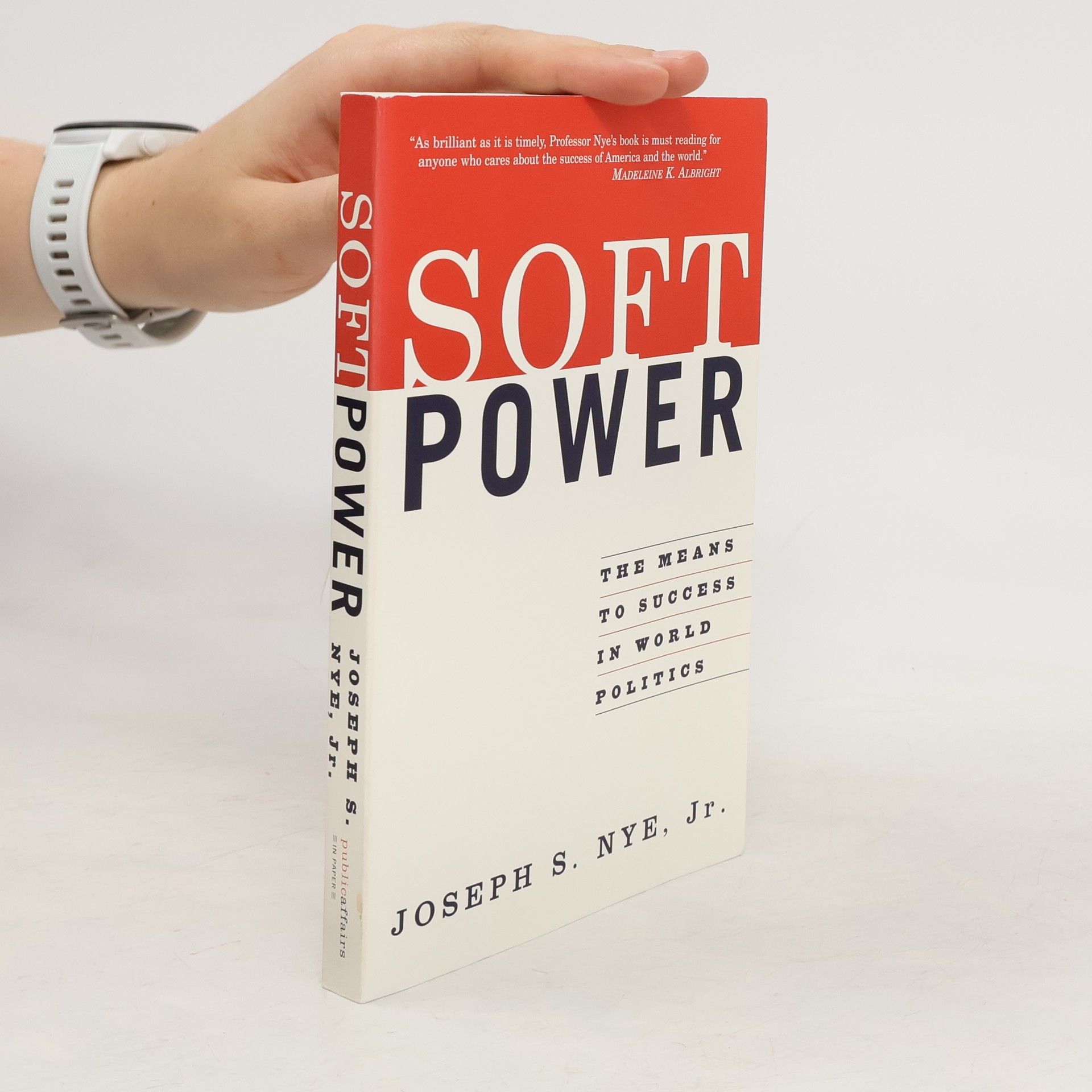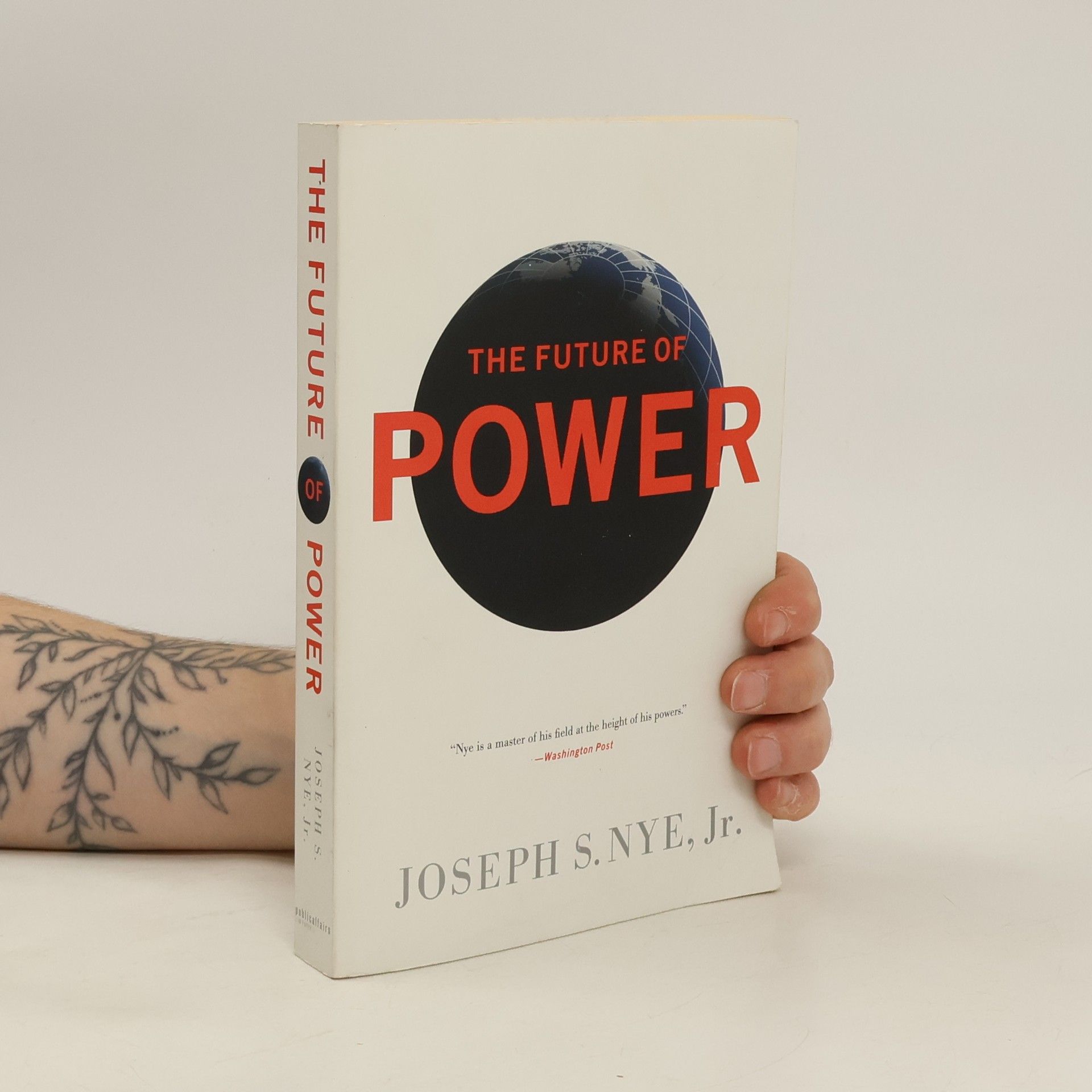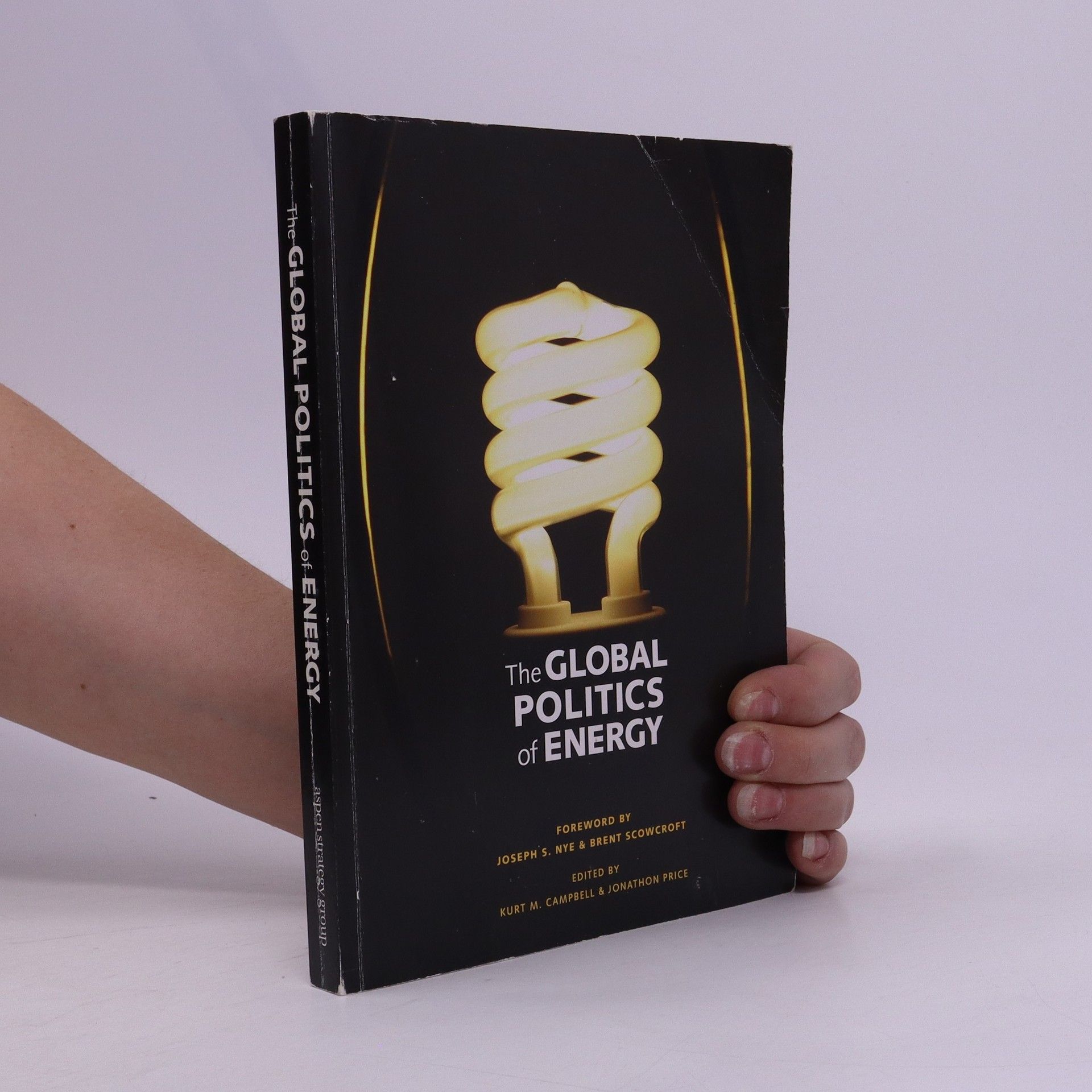Part of the "Longman Classics in Political Science" series, this book is intended for students of international politics. It contains discussions about Middle East politics, including the Israel-Palestine dispute and the Iraq war, terrorism in general and radical Islamic terrorism in particular, the global politics of oil, and more.
Joseph S. Nye Boeken
Joseph Nye is een sleutelfiguur in de internationale betrekkingen, die de dynamiek van macht en wereldwijde politiek diepgaand onderzoekt. Hij staat bekend om de ontwikkeling van de theorie van het neoliberaal institutionisme en concepten als "soft power" en "smart power", die ons begrip van internationale betrekkingen en buitenlands beleid diepgaand hebben beïnvloed. Zijn werk duikt in hoe staten en niet-statelijke actoren interageren in een complexe wereld, en biedt diepgaande inzichten in de ingewikkelde complexiteit van modern wereldwijd bestuur. Nye's impact op het vakgebied is blijvend en verstevigt zijn status als een van de meest invloedrijke academici op het gebied van internationale betrekkingen.

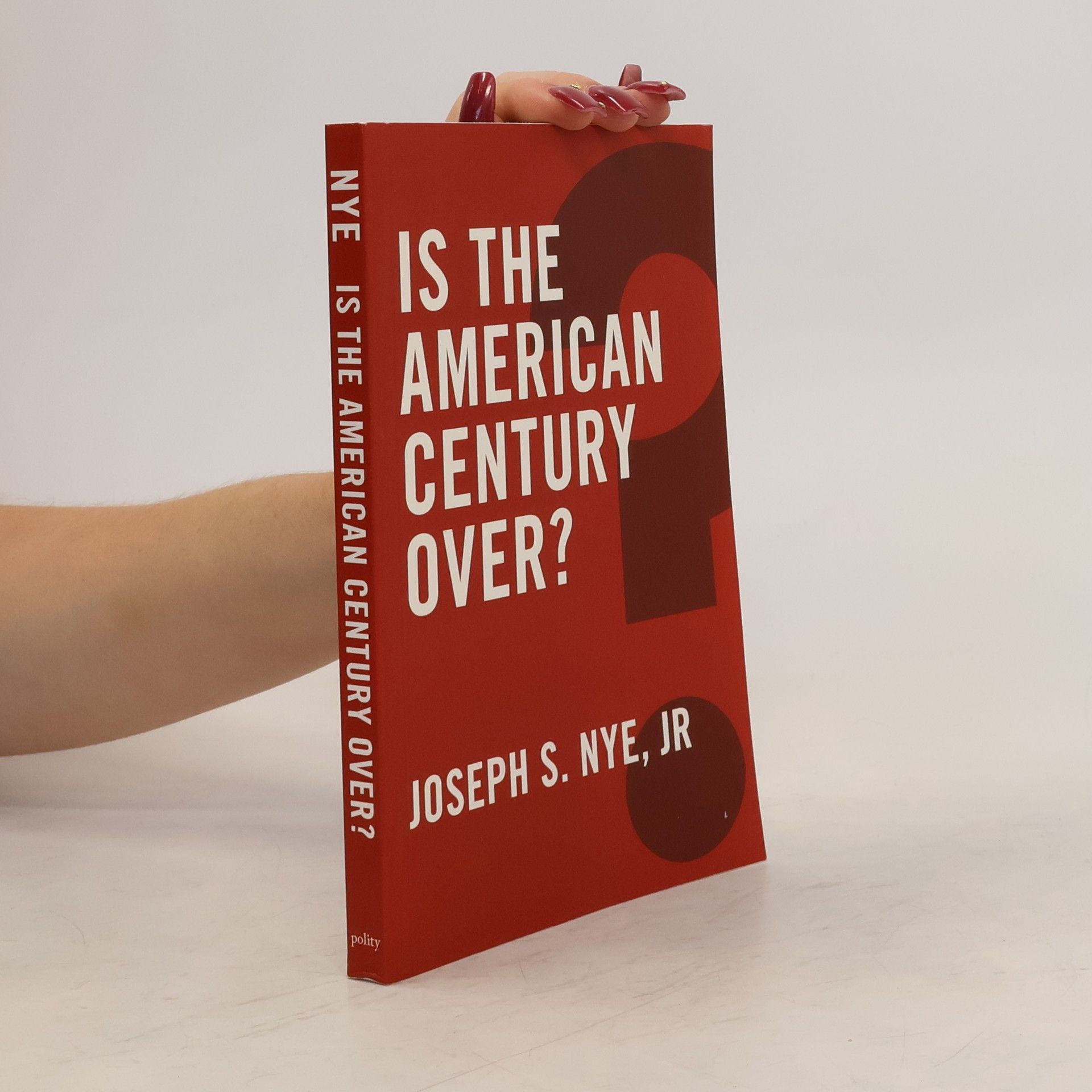
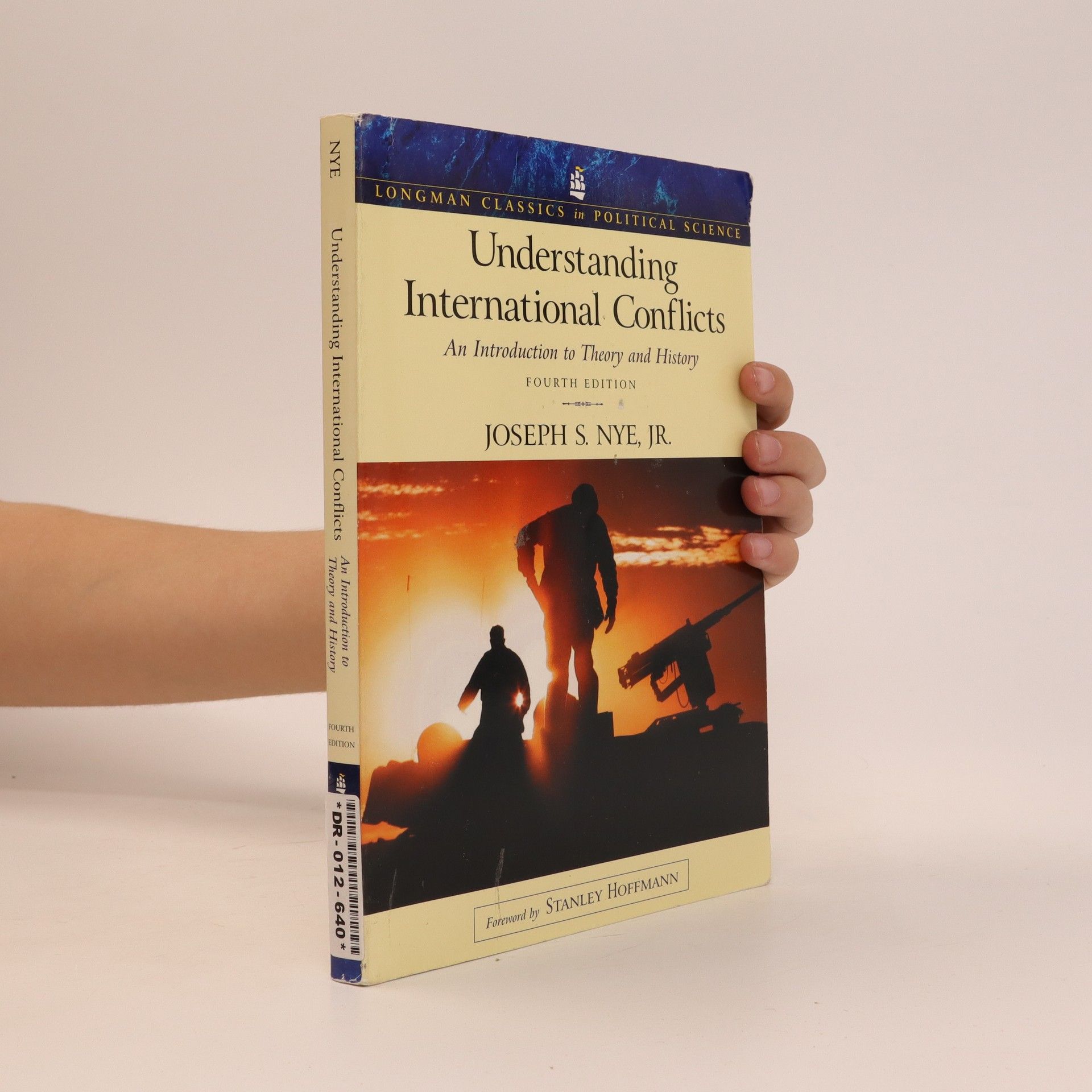

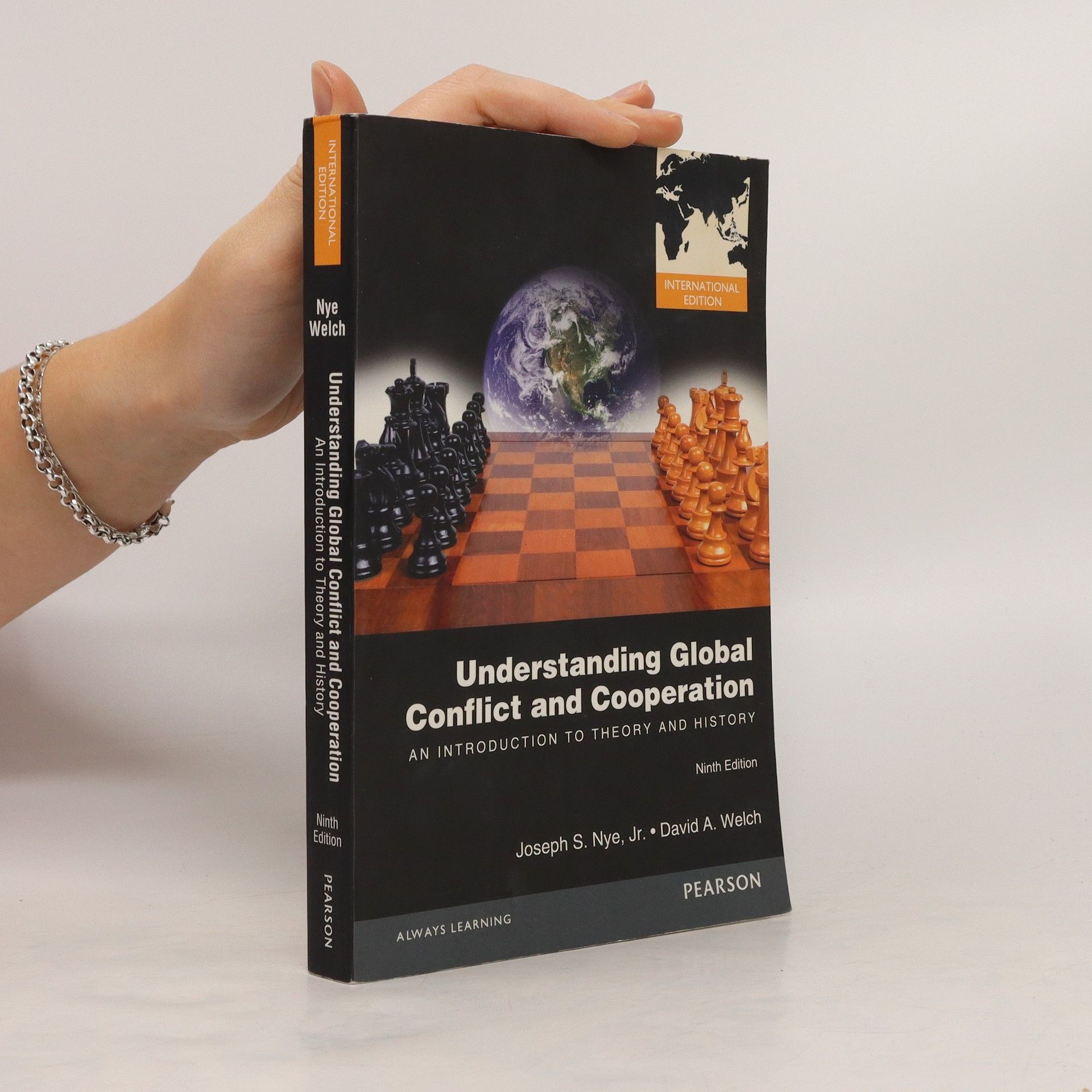
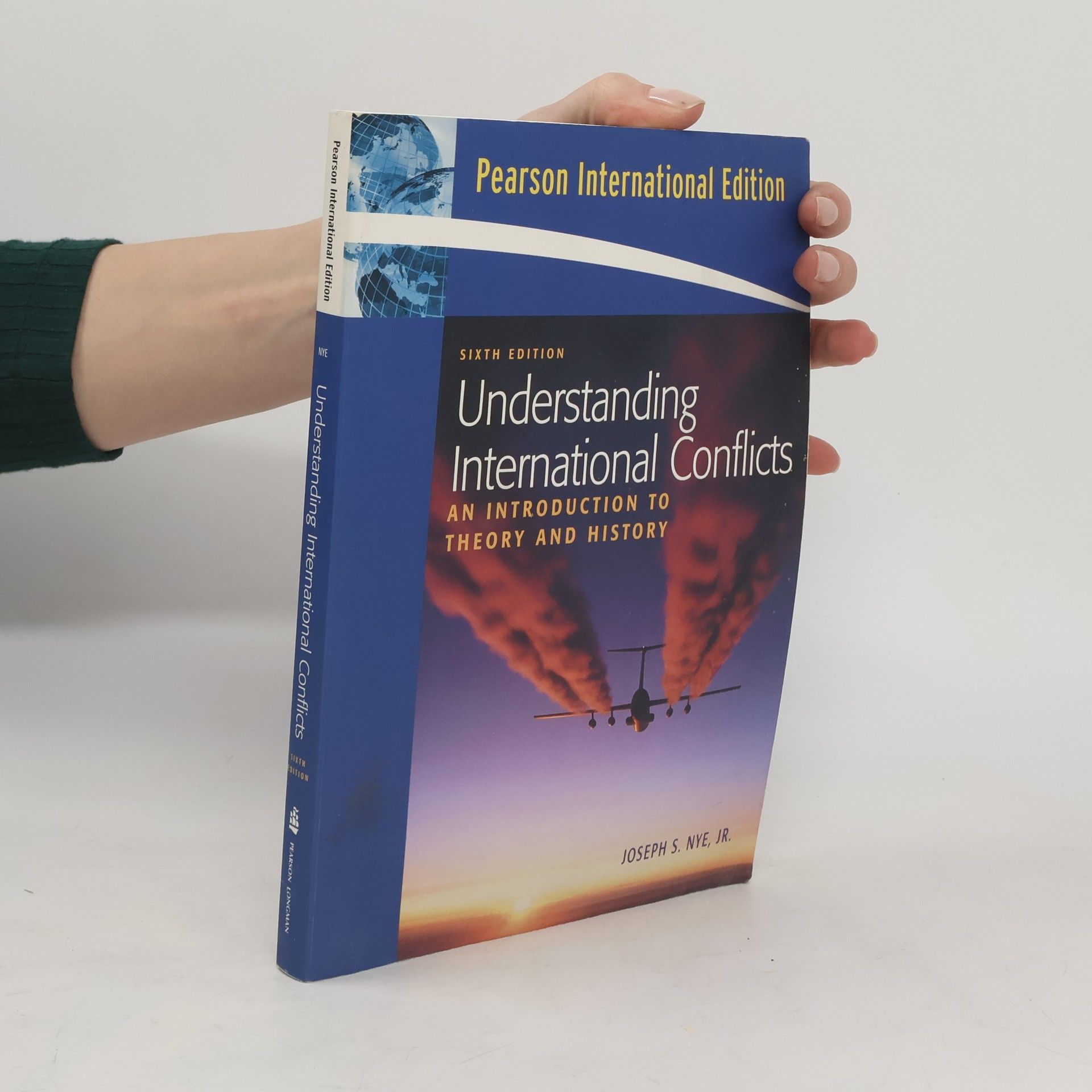
Understanding Global Conflict and Cooperation
- 384bladzijden
- 14 uur lezen
Chapter 1. Are There Enduring Logics of Cooperation in World Politics? Chapter 2. Explaining Conflict and Cooperation: Tools and Techniques of the Trade Chapter 3. From Westphalia to World War I Chapter 4. The Failure of Collective Security and World War II Chapter 5. The Cold War Chapter 6. Post-Cold War Cooperation, Conflict, Flashpoints Chapter 7. Globalization and Interdependence Chapter 8. The Information Revolution and Transnational Actors Chapter 9. What Can We Expect in the Future?
Understanding International Conflicts
- 288bladzijden
- 11 uur lezen
This text includes timelines of particular conflicts, to help students to contextualize events. There are study questions at the end of each chapter and examples to help illustrate concepts. Topics covered include: military affairs; ethnic conflict; and economic globalization.
Is the American Century Over?
- 152bladzijden
- 6 uur lezen
For more than a century, the United States has been the world s most powerful state. Now some analysts predict that China will soon take its place.
Do Morals Matter?
- 272bladzijden
- 10 uur lezen
What role does ethics play in American foreign policy? The advent of the Trump Administration has raised this from a theoretical question to front page news. Should ethics even play a role, or should we only focus on defending our material interests? In Do Morals Matter? Joseph S. Nye provides a concise yet penetrating analysis of how modern American presidents have-and have not-incorporated ethics into their foreign policy. Nye examines each presidencyduring the American era after 1945 and scores them on the success they achieved in implementing an ethical foreign policy. Alongside this, he also evaluates their leadership qualities, explaining which approaches work and which ones do not.
The paradox of American power. Why the world's only superpower can't go it alone
- 240bladzijden
- 9 uur lezen
"What role should America play in the world? What key challenges face us in the 21st century, and how should we define our national interests? These questions have been given electrifying new significance in the wake of the terrorist attacks of September 11, 2001." "Not since Rome has any nation had so much economic, cultural, and military power, but that power does not allow us to solve global problems like terrorism, environmental degradation, and the proliferation of weapons of mass destruction without involving other nations. In The Paradox of American Power, Joseph S. Nye Jr. focuses on the rise of these and other new challenges and explains clearly why America must adopt a more cooperative engagement with the rest of the world."--Publisher's description
Soft Power. The Means To Success in World Politics
- 191bladzijden
- 7 uur lezen
Joseph Nye coined the term "soft power" in the late 1980s. It is now used frequently—and often incorrectly—by political leaders, editorial writers, and academics around the world. So what is soft power? Soft power lies in the ability to attract and persuade. Whereas hard power—the ability to coerce—grows out of a country's military or economic might, soft power arises from the attractiveness of a country's culture, political ideals, and policies. Hard power remains crucial in a world of states trying to guard their independence and of non-state groups willing to turn to violence. It forms the core of the Bush administration's new national security strategy. But according to Nye, the neo-conservatives who advise the president are making a major miscalculation: They focus too heavily on using America's military power to force other nations to do our will, and they pay too little heed to our soft power. It is soft power that will help prevent terrorists from recruiting supporters from among the moderate majority. And it is soft power that will help us deal with critical global issues that require multilateral cooperation among states. That is why it is so essential that America better understands and applies our soft power. This book is our guide.
The future of power
- 320bladzijden
- 12 uur lezen
One of America's leading policy intellectuals, who coined the term soft power, looks at what has happened to American power from the time of Kennedy in the 60's through the present day. In the era of Kennedy and Khrushchev, power in the US was expressed in terms of nuclear missiles, industrial Capacity, numbers of men under arms, and tanks lined up ready to cross the plains of Eastern Europe. By 2010, none of these factors confer power in the same way: industrial capacity seems an almost a Victorian virtue, and cyber threats are wielded by non-state actors. Politics changed, and the nature of power - defined as the ability to affect others to obtain the outcomes you want - had changed dramatically. Power is not static, its story is of shifts and innovation, technologies and relationships. Josephy Nye is a long-term analyst of power and a hands-on practitioner in government. Many of his ideas have been at the heart of recent debates over the role America should play in the world: his concept of 'soft power' has been adopted by leaders from Britain to China: 'smart power' has been adopted as the bumper-sticker for the Obama Administration's foreign policy. This book is the summary of his work, as relevant to general readers as to foreign policy specialists. It is a vivid narrative that delves behind the elusive faces of power to discover its enduring nature in the cyber age.
Aspen policy books is a series devoted to developing critical new thinking on U.S. national security policy. This book is a collection of papers prepared for the 2007 Aspen Strategy Group conference on The Global Politics of Energy. This cross-disciplinary and high-level examination of policy strategies for addressing the challenges posed by the soaring demand for oil, the rise of petro-powers, and the implications of climate change makes energy security issues urgently relevant to the American and global policy communities. Contributors include: Jeffrey Bader (The Brookings Institution), Stephen Biegun (Ford Motor Company), Ivo Bozon (McKinsey & Co.), Diana Farrell (McKinsey Global Institute), Jay Gulledge (Pew Center on Global Climate Change), Robert Hefner (The GHK Company), John Podesta (Center for American Progress), Dennis Ross (The Washington Institute for Near East Policy), David Rothkopf (Carnegie Endowment for International Peace), Angela Stent (Georgetown University), David Victor (Stanford University), and Daniel Yergin (Cambridge Energy Research Associates)

